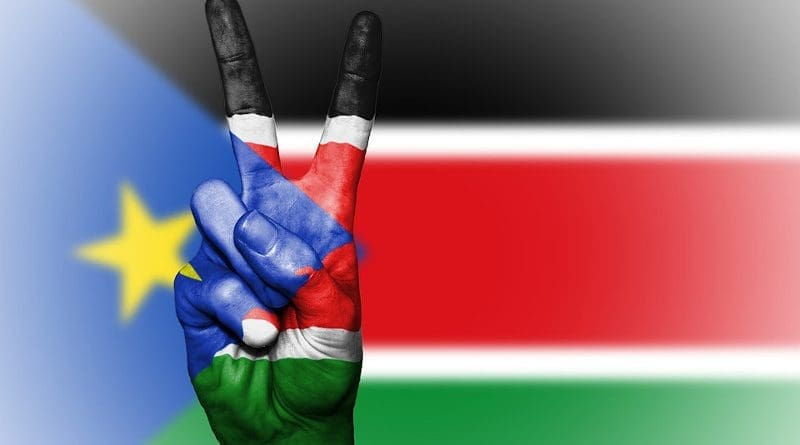In August 2022, South Sudan’s transitional government extended its term to February 2025, with elections planned for December 2024. The extension would allow time for ironing out challenges in implementing the country’s 2018 peace agreement, which had initially scheduled polls for December 2022.
Since signing the Revitalised Agreement on the Resolution of the Conflict in South Sudan in 2018, every milestone in the accord has been delayed, with dire consequences for South Sudan’s stability and its people.
The formation of the transitional unity government took place in 2020, more than six months later than scheduled. Unification and deployment of 83 000 troops were to happen within eight months of signing the peace accord. But disagreement over ratios, rankings and a lack of resources saw the trained unified force’s first graduation only in August 2022.
The first deployments were announced in October 2023 amid ongoing problems. These included a lack of public trust in the security forces because disarmament and reintegration weren’t properly implemented, and a shortage of resources, skills and professionalism among the trained forces.
Other provisions in the peace agreement, such as humanitarian assistance and reconstruction, financial and resource management, and transitional justice, have also been poorly implemented.
Awareness among voters and political parties is vital for the first election since independence
When the transition was extended in 2022, it included a roadmap for holding elections in December this year. However, several requirements have not been met, such as improved security, drawing up electoral frameworks, and capacitating institutions. Some crucial steps to facilitate these milestones were taken only in November 2023, including reconstituting the National Constitutional Review Commission, National Elections Commission and Political Parties Council.
Getting these bodies off the ground requires time. For example, establishing a constitution will need lengthy consultations and substantial resources to resolve differences among the polarised elite and political parties.
Electoral responsibility is shared by the National Elections Commission (in charge of civic and voter education) and the Political Parties Council (tasked with registering and regulating political party activities). Successful voter awareness and registration require sensitisation campaigns among the electorate and political parties. This is vital for a country undertaking its first election since independence and will have significant implications for the quality and outcome of the polls.
Sensitising local communities and party loyalists is also essential for the results of voting to be accepted, which could in turn, prevent post-electoral violence. As South Sudan transitions from civil war to peace and democracy, developing a civic understanding of electoral procedures, rights and responsibilities is essential for peaceful elections. Without it, disputes may escalate into violence as elites try to control the narrative and manipulate communities.
Undertaking a census – an election prerequisite – has been hindered by poor security and infrastructure
Security and judicial apparatuses are also crucial for ensuring peaceful polls and fair dispute resolution mechanisms, should they be needed. However, even undertaking a census – an election prerequisite in the peace agreement – has been hindered by poor security and infrastructure nationwide.
All these factors are likely to lead to a disputed election or another extension, which may reverse gains and spur a resurgence of conflict.
The multifaceted implications of COVID-19 coincided with the start of South Sudan’s transition. As a result, international and regional resources were diverted away from providing effective oversight of the peace deal’s implementation.
The African Union (AU) and the Intergovernmental Authority on Development (IGAD), which brokered the peace accord, faced constraints on their time, capacity and resources. The Tigray war in Ethiopia and the crisis in Sudan also drew their attention away from ensuring the signatories to South Sudan’s agreement identified and resolved deadlocks timeously.
The Reconstituted Joint Monitoring and Evaluation Commission is mandated to report to the guarantors (the AU and IGAD) on non-compliance. Violations and issues must be reported to IGAD’s chairperson for a decision on remedial actions. But IGAD is lagging in mobilising the means and resources to fast-track the milestones needed for the December elections.
Requirements such as improved security, electoral frameworks and capacitating of institutions haven’t been achieved
However, as guarantors, the AU and IGAD should do more than just monitor progress on the peace agreement. After a field mission to South Sudan by the AU’s Peace and Security Council (PSC), the matter was discussed in February and November 2023. But the concerns and suggestions noted were not in keeping with the gravity of the threat posed in the country.
South Sudan’s challenges will increase when President Salva Kiir becomes IGAD chair in July 2024. That will see the main guarantor being chaired by a signatory party to the peace accord during the six months leading up to elections – a crucial period for South Sudan and its transition.
IGAD’s role will be complicated as holding meetings and taking decisions on South Sudan will require authorisations from Juba, posing a conflict of interest. The AU should prepare to be more involved in resolving the challenges and competing interests that may arise within IGAD.
The PSC should play an early warning role and monitor African actors’ roles in the lead-up to the election. It could request updates on preparations for the polls and follow these up with field visits to assess the readiness of state structures. It should address the absence of pressure from South Sudan’s partners and the risks posed by a disputed election, and enlist an AU envoy or the Panel of the Wise to drive diplomatic engagements.

